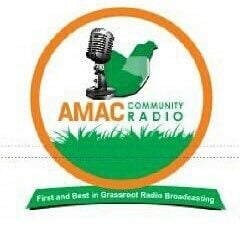A new levy on radio, television, and other electronic devices imposed by the Abuja Municipal Area Council (AMAC) has been met with widespread criticism from residents and business owners, who described it as an oppressive and ill-timed “multiple taxation” that threatens the survival of businesses in the nation’s capital.
The controversy stemmed from the recently enacted AMAC Radio and Television Licence Bye-Law (No. 19) of 2024. Demand notices, seen by our correspondent, were already being served to occupants of homes and business owners across the municipality.
The notices demand full payment within 21 days, warning that failure to comply is a punishable offence that could lead to arraignment before a Magistrate Court and the possible sealing-off of the affected premises.
The law mandates an annual licence fee for anyone who owns or controls a radio, television, or “other items of the same or similar kind.” The fees vary drastically, targeting everything from large corporations to individual households.
According to the law’s schedule, large banks and multinationals (Category B) are to pay N1,000,000 annually. Medium-sized businesses like supermarkets, hotels, and telecom companies (Category C) face bills between N50,000 and N200,000.
Most controversially, residents living in duplexes, flats, bungalows, and self-contained apartments (Category D) are also required to pay between N3,500 and N20,000 per dwelling.
In an interview across the Area Council, the sentiment was overwhelmingly negative. Many questioned the rationale behind the tax, especially amidst a severe economic downturn.
Mr Chike Okonkwo, a restaurateur in the Jabi district, received a notice classifying his business under Category C. “This is unbelievable. I am already paying ten different taxes and levies to local, state, and federal agencies.
“Now, AMAC wants me to pay for the small television in my customer waiting area? What exactly is this payment for? Are they providing electricity or signal for it? This will simply force me to increase the price of my food. The customer ultimately suffers,” he said.
For residents, the levy looks like a targeted attack on home comforts. A resident of a 3-bedroom flat in Gwarinpa, who wished to remain anonymous, asked, “Are we now to pay for the right to watch NTA or listen to the radio in our own homes?
“What is the difference between this and the infamous radio licence of the colonial era? With the high cost of living, this is an insult to the average Nigerian just trying to get by.”
Legal experts have also raised concerns. A public affairs analyst, Barr. Rotimi Samuel, questioned the law’s vagueness. “The phrase ‘other items of the same or similar kind’ is dangerously broad.
“Does it cover smartphones, tablets, laptops, or Bluetooth speakers? This gives AMAC officials excessive power to interpret the law arbitrarily and harass citizens during their ‘inspections’,” he said.
Business owners warned that the levy will further dampen the already challenging business environment in Abuja.
“The message this sends to investors is terrible. It signals that the local government is more interested in creating new avenues for revenue extraction than in creating an enabling environment for businesses to thrive.
“This constant fear of arbitrary levies and the threat of having your business sealed is a major disincentive,” said Nkechi Okoro, a beauty salon owner.
The threat of a N10,000 fine or one-month closure for corporate bodies, as stated in the law, is seen as particularly draconian for small and medium-scale enterprises (SMEs) already struggling to stay afloat.
Residents and business owners are calling for an immediate review and possible suspension of the levy.
They are demanding a public campaign to explain the necessity of the levy and what the generated revenue will be used for, rather than just issuing demand notices with threats.
They also demanded a clear and exhaustive list of what constitutes “electronic devices” to prevent extortion and harassment by enforcement officers, and a suspension of the levy, especially for residential homes and small businesses, given the current economic hardship in the country.
When contacted for comment, a representative from the AMAC Radio and Television annex office in Jabi declined to speak, directing all inquiries to the council’s main secretariat.
The senior special assistant on Media and Publicity to the AMAC chairman, Kingsley Madaki, explained that the radio and television licence has existed since the Micah Jiba-led administration in AMAC and is not a new item introduced in the council’s bylaw.
“It is under section four schedule of the 1999 Constitution and it is under Tax and Levy. So, it is not a new item introduced by this government; it has been there. Anybody that contravenes that section of our bylaw shall be fined.
“Our agents going round are meant to visit corporate and residential bodies to check and ensure that they pay accordingly. All corporate bodies are meant to pay the tax. If you have a radio or television, you must pay the license,” he said.
As the 21-day deadline looms for those who have received notices, many were left wondering whether to pay a levy they consider unjust or risk the severe penalties, including the seizure of their homes and businesses.





